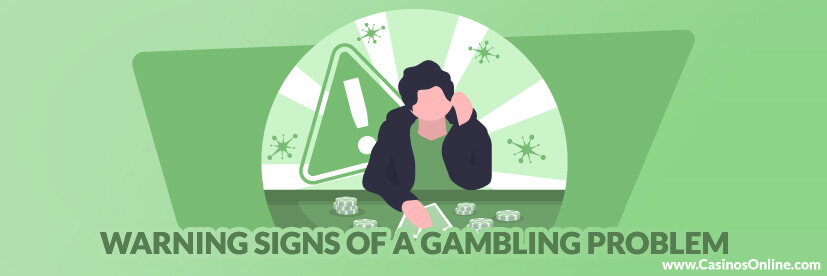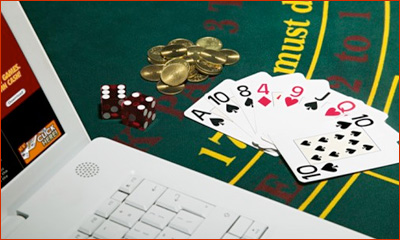
Gambling addiction is the apparent inability to stop gambling, even when the activity is causing the gambler irreparable harm. It is also referred to as problem gambling or compulsive gambling. Gambling addiction is an impulse control disorder, much like substance addiction. It is reported that only about 3% of the population suffers from this disorder, but this statistic does not help if you happen to be among that 3%.
Gambling addicts are unable to stop gambling even though they know that they are spending more money than they can afford on the activity. The time they spend on gambling disrupts their family and social life and affects their health. Therefore, the family also suffers along with the gambling addict. The good news is that gambling addiction is curable. Online casinos not only encourage responsible gambling practices, but also assist players in detecting if they have gambling addiction problems.
10 Common Warning Signs of Gambling Problem
Warning signs for gambling addiction are not difficult to see, if you want to take heed. Many online casinos offer self-assessment tests that decipher whether you are addicted to gambling and if so to what extent. The ten most important warning signs are discussed below.
- You start spending more money on gambling than you had set aside for this purpose. If the weekly (or monthly) budget you had allocated to gambling gets used up more quickly than before then this is the first step towards gambling addiction.
- You start deferring important expenditure and dipping into your savings in order to meet your gambling money requirements. By doing so, you start sacrificing your present quality of life and your future security in order to gamble.
- If this goes unchecked then you will have depleted your own resources. You start borrowing money from friends or taking loans in order to continue gambling. In the worst case gambling addiction can lead you to steal money in some form.
- Chasing losses is a common gambling addiction warning sign. This usually begins when you have gambled with funds earmarked for other activities or with loans that have to be returned. It is accompanied by the compulsion to gamble at higher stakes in order to recoup earlier losses more quickly.
- Money is only one of the resources put into gambling. Another is time. If you are spending more and more time on gambling activities then you are heading into gambling addiction.
- Normally you should earmark a part of your leisure time for gambling. But when you start gambling at work it should be taken as a warning sign. It begins with gambling during the lunch hour. But the habit creeps into regular working time before you know it. If you are a university student then the warning signs will be if you gamble in between lectures and start turning in shoddy assignments because you have been gambling.
- Even at home, for problem gamblers gambling takes priority over socializing with the family and friends. It begins with not going to a party thrown by a friend. But it can soon extend to more serious outcomes like ignoring birthdays of family members.
- If you are gambling more than you should, then your family members are likely to take note. Instead of addressing the issue honestly, you lie to them about the amount of money you spend on gambling. You should heed this inability to tell the truth as a serious warning for gambling addiction.
- You start living in an illusionary world. Every day you feel that the big jackpot will be hit that day and will end all your financial woes. This never happens, but the dream persists and drives you to keep gambling.
- You can sense that what you are doing is not correct. You even feel guilty when you are gambling. But you get depressed when you are not gambling. The driving force behind the depression is stronger and compels you to continue gambling.

How to Stop a Gambling Disorder
The best way to stop a gambling disorder is to prevent it from happening. Allocate your gambling budget in such a way that it does not impact your other activities. Spend only that much time on gambling so that you can devote quality time to your family. And make sure that you adhere to both your time and money budgets.
Keep a look out for the warning signs listed above. If you find them in your gambling behavior then take action immediately. Try to self-exclude yourself from online casinos for a cooling off period first and then if need be exclude yourself permanently. All the good online casinos offer these options. Confide about your problem to a friend or family member. And do not feel embarrassed at seeking professional counseling assistance.
Make sure to read our follow up article, How to Get Help for a Gambling Addiction, that talks about the help that is available and what actions you can take.















